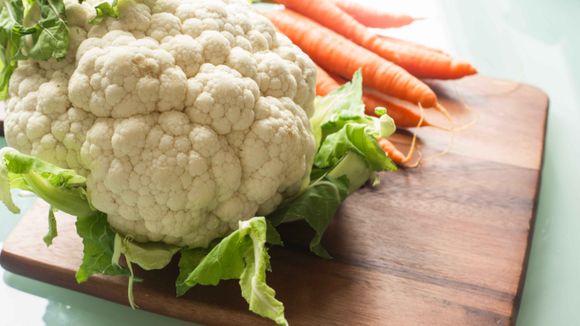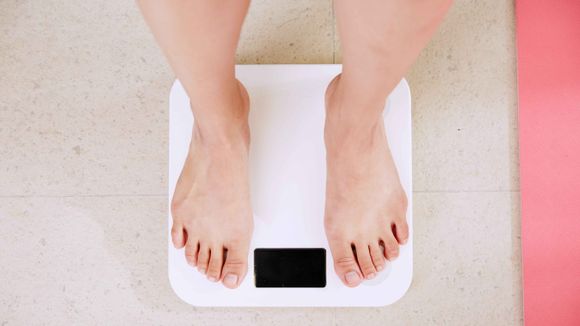Low-Carb Diet: A Comprehensive Overview
A low-carbohydrate (low-carb) diet is an eating plan that emphasizes consuming fewer carbohydrates and prioritizing healthy fats and proteins. By reducing carbohydrate intake, the body is forced to use fat for fuel, which can lead to weight loss and improved health markers (1).
(1) Volek, J. S., & Phinney, S. D. (2011). The Art and Science of Low Carbohydrate Living: An Expert Guide to Making the Life-Saving Benefits of Carbohydrate Restriction Sustainable and Enjoyable. Beyond Obesity LLC.
Benefits for Weight Loss
Low-carb diets have been shown to be effective in promoting weight loss. A study published in the British Journal of Nutrition compared the effects of low-carb and low-fat diets on weight loss and found that low-carb diets were more effective in reducing body weight and fat mass (2). Moreover, low-carb diets can help regulate appetite, making it easier to control calorie intake and avoid overeating.
(2) Bueno, N. B., de Melo, I. S., de Oliveira, S. L., & da Rocha Ataide, T. (2013). Very-low-carbohydrate ketogenic diet v. low-fat diet for long-term weight loss: a meta-analysis of randomised controlled trials. British Journal of Nutrition, 110(7), 1178-1187.

Photo by Ryan 'O' Niel on Unsplash
Benefits for specific health conditions and diseases
Low-carb diets can also have positive effects on various health conditions and diseases:
- Diabetes: Low-carb diets may help improve blood sugar control and reduce the need for medications in people with type 2 diabetes (3).
- Heart health: Studies have suggested that low-carb diets can improve lipid profiles, reducing the risk of cardiovascular disease (4).
- Metabolic syndrome: Low-carb diets can help address components of metabolic syndrome, such as high blood pressure, high blood sugar, and abdominal obesity (5).
(3) Saslow, L. R., Mason, A. E., Kim, S., Goldman, V., Ploutz-Snyder, R., Bayandorian, H., ... & Moskowitz, J. T. (2017). An Online Intervention Comparing a Very Low-Carbohydrate Ketogenic Diet and Lifestyle Recommendations Versus a Plate Method Diet in Overweight Individuals With Type 2 Diabetes: A Randomized Controlled Trial. Journal of Medical Internet Research, 19(2), e36. (4) Volek, J. S., & Feinman, R. D. (2005). Carbohydrate restriction improves the features of Metabolic Syndrome. Metabolic Syndrome may be defined by the response to carbohydrate restriction. Nutrition & Metabolism, 2(1), (5) Westman, E. C., Yancy, W. S., Mavropoulos, J. C., Marquart, M., & McDuffie, J. R. (2008). The effect of a low-carbohydrate, ketogenic diet versus a low-glycemic index diet on glycemic control in type 2 diabetes mellitus. Nutrition & Metabolism, 5(1), 36.
Two Low-Carb Recipes to Get You Started
Cauliflower Fried Rice
Ingredients:
- 1 large head of cauliflower, riced
- 2 tablespoons sesame oil
- 1 cup mixed vegetables (carrots, peas, and corn)
- 2 large eggs, beaten
- 2 green onions, chopped
- 3 tablespoons soy sauce
- Salt and pepper, to taste
Instructions:
- Heat sesame oil in a large skillet over medium heat.
- Add riced cauliflower and cook for 5-7 minutes, stirring occasionally, until tender.
- Stir in mixed vegetables and cook for an additional 3-4 minutes.
- Push cauliflower mixture to one side of the skillet and pour beaten eggs into the other side. Scramble the eggs until cooked, then mix them into the cauliflower mixture.
- Stir in green onions and soy sauce, and cook for another 2 minutes. Season with salt and pepper to taste.

Photo by Louis Hansel on Unsplash
Zucchini Noodle Alfredo
Ingredients:
- 4 medium zucchini, spiralized
- 1 cup heavy cream
- 1 cup grated Parmesan cheese
- 2 cloves garlic, minced
- 2 tablespoons butter
- Salt and pepper, to taste
- Fresh parsley, chopped (optional)
Instructions:
- Melt butter in a large skillet over medium heat. Add garlic and cook for 1-2 minutes, until fragrant.
- Stir in heavy cream and bring to a simmer. Cook for 4-5 minutes, until slightly thickened.
- Add Parmesan cheese, stirring until melted and smooth. Season with salt and pepper to taste.
- Add zucchini noodles to the skillet and toss with the sauce. Cook for 2-3 minutes, until noodles are tender but still have a slight crunch.
- Serve immediately, garnished with fresh parsley, if desired.
Questions and Answers
Q: Can I exercise while on a low-carb diet?
A: Yes, you can still exercise while following a low-carb diet. However, you may need to adjust your workout routine and intensity based on how your body responds to the reduced carbohydrate intake.
Q: How do I know how many carbs to consume daily?
A: The number of carbs to consume daily will vary depending on your individual goals, activity level, and health conditions. A general guideline is to aim for 50-150 grams of carbs per day, but it's best to consult with a healthcare professional or registered dietitian to determine the right amount for you.
Q: Are all carbs bad for you?
A: No, not all carbs are bad. In fact, some carbs, like those found in whole grains, fruits, and vegetables, are essential for a balanced diet. The key is to focus on consuming complex carbs from whole, unprocessed foods and avoiding refined carbs found in processed, sugary foods.
Q: Can I still eat fruit on a low-carb diet?
A: Yes, you can still eat fruit on a low-carb diet, but it's essential to choose lower-carb options, such as berries, and consume them in moderation.
Q: How can I ensure that I'm getting enough nutrients while following a low-carb diet?
A: To ensure you're getting enough nutrients, focus on consuming a variety of whole, unprocessed foods, including non-starchy vegetables, lean proteins, healthy fats, and low-carb fruits. You may also consider taking a multivitamin or speaking with a healthcare professional or registered dietitian for personalized advice.









